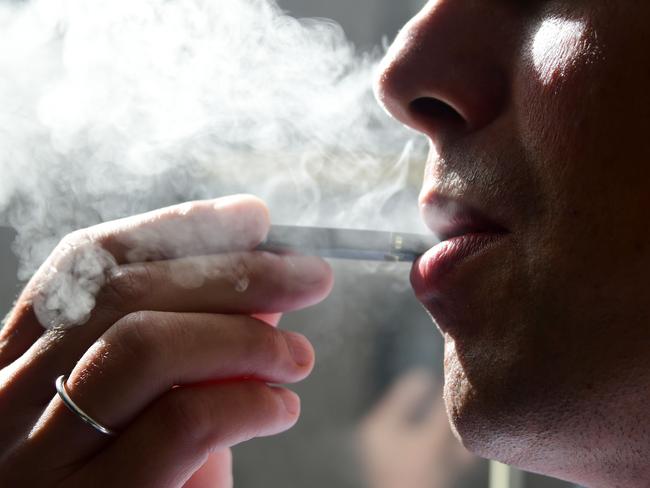Talking Point: Legalise vaping to help Tasmania cut smoking rates
ROBERT MALLETT: The way it’s going, Tasmania has no hope of meeting its smoking reduction targets

Opinion
Don't miss out on the headlines from Opinion. Followed categories will be added to My News.
Moves by New Zealand Prime Minister Jacinda Ardern’s government to release draft legislation to legalise and regulate vaping (or e-cigarettes) should send a strong signal to politicians in Tasmania.
New Zealand joins the vast majority of western countries who have recognised vaping as an effective and legitimate smoking cessation and harm reduction tool, including the United Kingdom, Canada, the United States, countries in the European Union, and Japan.
In fact, Australia is now fast becoming an outlier, one of the few places where vaping of nicotine products is still illegal (without a doctor’s prescription) and more worryingly, unregulated.
At the same time, evidence is rapidly increasing that vaping is much less harmful than traditional cigarettes (up to 95 per cent less harmful, according to Public Health England). This is because vaping delivers nicotine while avoiding the whole host of nasty poisons which are also delivered through burning nicotine in a traditional cigarette.
The evidence is also increasing that vaping is an effective smoking cessation tool — for example, in Japan, smoking rates declined by 10 per cent from 2015 to 2018 following the regulation of vaping.
More recently, and very significantly, the Royal Australian College of General Practitioners has conditionally supported vaping as a means of helping smokers to quit cigarettes.
VAPING CAN HOOK A NEW GENERATION
I want to be very clear — the Tasmanian Small Business Council, and our retailer members wish to do everything we sensibly can to help reduce smoking rates.
But like it or not traditional cigarettes are still a legal product, and are an important part of the business model for many small retailers; not only for the product itself, but more significantly, for the additional trade that those products bring in once customers have come into the store.
It is for this reason we are strongly opposed to the so-called T21 social experiment (to raise the smoking age to 21) being backed by billionaire West Australian Twiggy Forrest, which will hurt retailers without actually reducing smoking rates — because young people will simply get their cigarettes from family, friends, or on the black market.
But we do strongly support the idea of legalising and regulating vaping.
This would enable retailers to sell a much less harmful product instead of traditional cigarettes, without simply sending people to the black market.
And importantly, because the price of cigarettes has been jacked up so much with Government taxes, vaping products are also up to 10 times cheaper than traditional cigarettes.
Given that the statistics show that the places in Tasmania with the highest smoking rates are also the most socially disadvantaged (for example, Bridgewater at a shocking 40 per cent), allowing people addicted to nicotine access to a much cheaper (and less harmful) product can only be a good thing.
As I said earlier, I don’t argue that we shouldn’t address our appalling smoking rates, of course we should.
Tasmania has the second-highest smoking rates in Australia at 18 per cent (behind only the Northern Territory).
At current rates, we have absolutely no hope of achieving the Tasmanian Government’s smoking goals of 10 per cent by 2020 (now) and just 5 per cent by 2025.
We must do more.
But rather than persisting with the flawed T21 social experiment for which there is no evidence it will actually work, I encourage government to look seriously at vaping.
Tasmania has been a leader on smoking reduction measures for many years, now is the time for us to take the lead again by moving to legalise and regulate vaping.
Robert Mallett is the executive officer of the Tasmanian Small Business Council.


